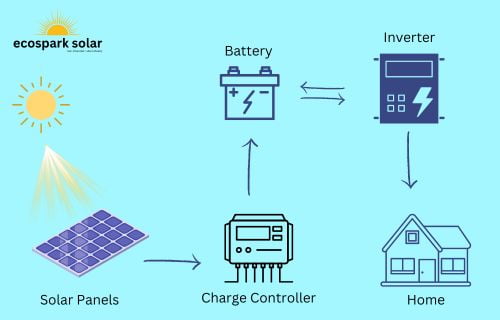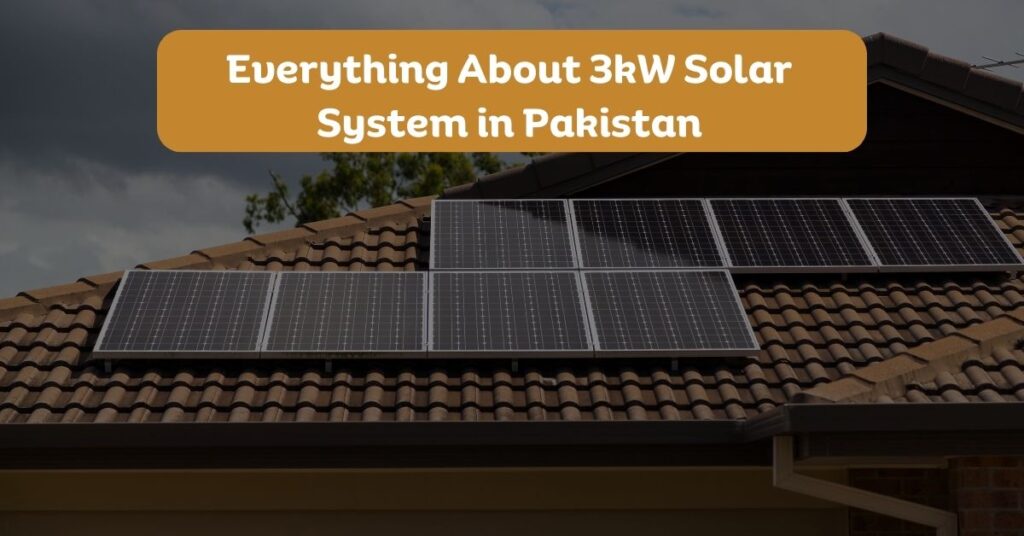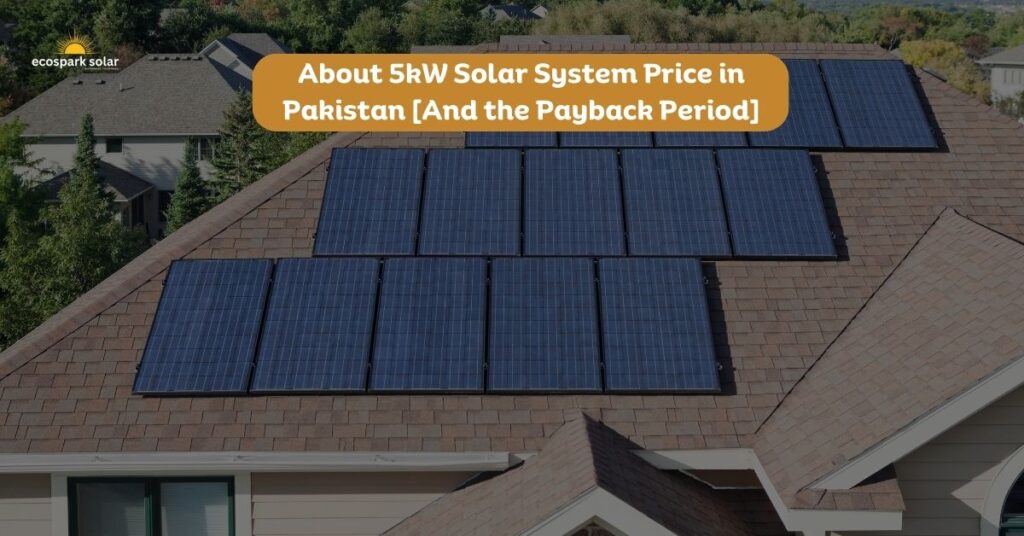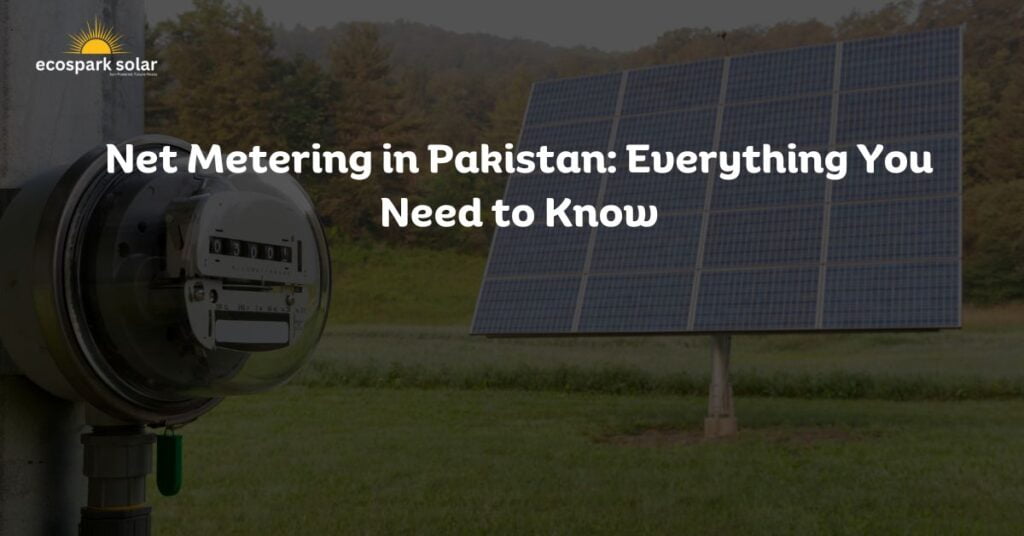Solar power has become increasingly accessible and versatile in Pakistan, offering various installation options to solar owners. One of these options is the off-grid solar system, which provides a unique approach to harnessing solar energy—the other two are the on-grid solar system and hybrid solar system.
In Pakistan, where sunlight is abundant and energy access can be challenging, especially in remote areas and agricultural setups, off-grid solar systems offer a promising solution.
But is this type of system suitable for everyone in Pakistan? Not really!
But why not?
Stay with us as we will discuss everything you need to know about off-grid solar systems in Pakistan.
To be specific, we will explore the following:
- Understanding off-grid solar systems
- How do off-grid solar systems work?
- Components required for off-grid solar setups
- Benefits of off-grid solar systems
- Is off-grid solar system worth it in Pakistan?
- Who should install off-grid solar systems?
- How to size your off-grid solar system?
And more.
First, the basics.
Understanding Off-Grid Solar Systems
Off-grid solar systems operate independently of the grid (WAPDA), allowing users to generate and consume electricity locally. These systems rely on solar panels to capture sunlight and convert it into electricity. It is converted to AC (alternating current) electricity by off-grid inverters and used at home. But if the electricity generated is in excess, then it stored in batteries for later use, ensuring a continuous power supply even during nighttime or cloudy days.
Unlike other systems, such as on-grid and hybrid solar systems, off-grid systems are not connected to the grid. All your energy needs must be met by solar panels during the daytime and batteries at night. Or, if there is no consumption required at nights, such as in agricultural properties, only solar panels would be enough.
Components Required for Off-grid Solar Systems
To set up a complete and efficient off-grid solar system, several components are necessary. These include the following:
- Solar panels: Of course! Solar panels capture sunlight and convert it into electricity.
- Charge controller: It regulates the flow of electricity from solar panels to batteries. Without charge controllers, batteries can overcharge, which would affect not only their performance but also their lifespan.
- Batteries: Batteries make the heart of any off-grid solar system. They store excess electricity for later use.
- Off-grid inverter: An off-grid inverter has to be there, as without it, we won’t be able to use the DC electricity generated by solar panels at homes—or in our offices. Inverters convert DC electricity from solar panels and batteries into AC electricity.
- Wiring and connectors: They connect all components and ensure proper electrical flow.
- Mounting structures: It helps securely fix solar panels in optimal positions.
- Backup generator (optional): Provides additional power during extended periods of low sunlight or high energy demand. For example, a backup generator would come to your rescue when the weather turns bad for a week, and the batteries are empty.
How Does an Off-Grid System Work?
Off-grid solar systems consist of four main components: solar panels, charge controllers, inverters, and batteries. Solar panels, usually installed on rooftops or open spaces, contain photovoltaic cells that convert sunlight into direct current (DC) electricity. The charge controller regulates the flow of electricity from the solar panels to the batteries, which prevent batteries from overcharging. Including charge controllers in the setup would prolong your batteries’ life.
Batteries store the excess electricity generated during the day, allowing users to access power when the sun is not shining. From batteries, the electricity is fed to the inverter, where it is converted into alternating current (AC) electricity for common household appliances and electronic devices. The following image accurately describes the whole process.

Benefits of Off-Grid Solar Systems
Off-grid solar systems offer numerous benefits that make them an attractive option for some energy consumers in Pakistan. While its benefits are many, one of its biggest downsides is its high initial cost. Since it involves a large battery bank, the cost might be quite high, depending on the battery type and brand.
That said, some of its benefits are listed below:
1. Energy Independence
Off-grid solar systems free users from reliance on the national electricity grid, allowing them to generate their own electricity and become self-sufficient. You generate the electricity; you control when it comes and goes.
2. Cost Savings
By installing an off-grid system, users can significantly reduce their electricity bills, especially in areas with unreliable or no access to the grid. If your home is not connected to the grid, you won’t receive any bill at all. However, if you have installed your solar system for only certain appliances, such as air conditioners, you will receive a reduced bill.
3. Environmentally Friendly
Off-grid solar systems produce clean and renewable energy, contributing to a greener environment by reducing reliance on fossil fuels and minimizing carbon emissions.
4. Reliability
Off-grid solar systems provide a reliable power source, particularly in remote areas where grid connectivity is challenging or during grid outages. As we said earlier, it doesn’t matter if there is load shedding—you will always have access to light. If there’s a fault in the system, you won’t have to wait for your DISCO officials to come and look at it. Just call your solar installer and they will fix the problem and the electricity will be restored.
5. Versatility
These systems can be tailored to fit individual energy needs, whether it’s for a small home, a farm, or an entire community, making them adaptable and scalable solutions. Its utility is specially visible in agricultural projects – for instance, you have a farm and there is no WAPDA electricity, what do you do? Just install a few panels, an inverter, and your tube well problems will be solved.
A solar system for everyone.
We’re customer-centric; we will find you a solution within your budget. Whatever your project size, you can always save with Ecospark Solar.
Is Off-Grid Solar System Worth it in Pakistan?
It depends. Off-grid solar systems are worth considering in Pakistan due to their potential to address the energy crisis faced by many communities. With an abundance of sunlight, particularly in rural areas, off-grid solar systems provide a sustainable and reliable source of electricity, reducing dependence on the grid and fossil fuels.
But go off-grid only when there is no grid nearby. It is because going completely off-grid is expensive—you will have to manage a large battery bank to cater to your needs during the night.
Another option is to go partially off-grid. For example, do not disconnect yourself completely from the grid. Instead, you can install an off-grid system for some of your appliances, such as essential appliances only. That would help more than going completely off-grid.
Who Should Install Off-Grid Solar Systems?
Off-grid solar systems are suitable for various individuals and entities in Pakistan.
For example:
1. Rural and Remote Communities
Off-grid solar systems are ideal for remote and rural areas with limited or no access to the national electricity grid. These systems can provide electricity to households, schools, healthcare centers, and small businesses, improving living standards and fostering economic growth.
If you have been to mountains, you would have seen that telecom towers use off-grid systems to power their towers. I have seen government buildings, such as police stations, go completely off-grid in the remote area of Khyber Pukhtunkhwa.
2. Agricultural and Farm Owners
Agricultural operations often require a consistent and reliable power supply. But sometimes, the grid is not readily available. In that case, off-grid solar systems come into play. They can power irrigation pumps, machinery, and other farm equipment, reducing operational costs and increasing productivity.
3. Eco-conscious Individuals
Individuals who prioritize sustainability and want to reduce their carbon footprint can benefit from off-grid solar systems. Off-grid systems generate clean and renewable energy, contributing to a greener and more sustainable future. So, if you are an environment-conscious individual or organization, an off-grid system would be your way.
4. Adventure Enthusiasts
Off-grid solar systems are also popular among outdoor enthusiasts, campers, and caravan owners who seek independence from traditional power sources while enjoying recreational activities. These small portable systems provide a reliable, eco-friendly way to power their adventures. You can carry it in your car. Assemble your camp, plug your system, and voila, you have power!
5. Off-Grid Only for a Few Appliances
Alternatively, you can install an off-grid system for some of your appliances. But note that your system will remain off-grid and not be connected to the grid. You will meet your electricity needs with solar panels during the day and batteries when it is night or when the weather is cloudy.
How to Size Your Off-Grid Solar System
While going off-grid, sizing your system correctly is an important step to ensure it meets your energy requirements. Here’s a general guideline to help you determine the appropriate system size:
1. Calculate Your Energy Needs
Determine your average daily—and monthly—energy consumption by assessing the wattage of your appliances and the number of hours you use them. This will give you an estimate of the energy demand in kilowatt-hours (kWh) per day and month.
2. Assess Peak Sun Hours
Understand the amount of sunlight available in your location. Consider factors such as seasonal variations and shading that may affect solar panel performance. Peak sun hours are those hours when your solar panels would perform at its best. In Pakistan, the number of peak sun hours is between 5 to 6.5.
Read more about peak sun hours in Pakistan. This article also features solar irradiation in notable areas of Pakistan.
3. Determine Battery Storage Capacity
Choose a battery bank with sufficient capacity to store excess energy generated during the day to cover your energy needs during nights or cloudy periods. Consider battery efficiency, type, warranty, and depth of discharge. Since you will not be connected to the grid, make sure that the battery bank is sized such that it meets your needs for a week.
Related Read: Lead-Acid vs. Lithium-ion Solar Batteries: Which Battery is Best for Solar?
4. Size the Solar Panel Array
Calculate the required solar panel capacity based on your energy consumption, peak sun hours in your region, and battery storage capacity. Consider factors like panel efficiency, orientation, and tilt angle. As a rule of thumb, if your consumption is under 300 units, install a 3kW solar system. If it is between 300 and 600, go for a 5kW solar system. And so on.
5. Consult an Expert
It is recommended to consult a professional solar installer or engineer to ensure accurate sizing and system design. Sizing your system is complex, and solar systems are expensive—you do not want to run into problems with poor size and design. Professionals can provide customized solutions based on your specific energy requirements and site conditions.
Off-Grid Solar System in Pakistan: Conclusion
In conclusion, off-grid solar systems in Pakistan offer a sustainable and reliable solution to meet the energy needs of remote areas and regions with unreliable grid connectivity. These systems provide energy independence, cost savings, environmental benefits, and a reliable power source. But these systems might not suit every household.
However, if you reside in a rural area, own a farm, or simply desire a greener lifestyle, off-grid solar systems can empower you with clean and renewable energy. With proper sizing and installation, these systems have the potential to transform Pakistan’s energy landscape, one solar panel at a time.



